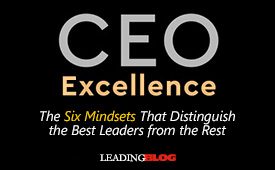Don’t Be Yourself
THE groundwork for the modern cult of authenticity was laid in our era by philosophers like Rousseau and others of his mindset who followed him. Their idea that any constraints laid on us or attempts to conform us by society make us inauthentic. But the fact is, we find out who we are in relation to other people and the communities in which we interact. Our uninhibited self is rarely our best self.
In Don’t Be Yourself: Why Authenticity Is Overrated (and What to Do Instead) published by Harvard Business Review Press, author Tomas Chamorro-Premuzic asks, “What if chasing authenticity was an actual trap—one that oversimplifies human complexity, disregards the necessity of compromise, and leaves us ill-equipped to navigate the nuanced realities of modern life, which include focusing not just on ourselves and how we feel, but also on others?”`
Our uninhibited, authentic self can hold us back from the potential we have.
Contrary to what the authenticity cult predicates, success is rarely attained through radical honesty or by always showing every single side of ourselves. Instead, it’s a function of carefully managing your self-presentation—adapting to situations and showcasing the qualities that are best appreciated by others—while making an effort to conceal negative, undesirable, and irrelevant aspects of your personality.
Chamorro-Premuzic presents us with four authenticity traps that encourage us to be our unfiltered selves regardless of the situation and refuse to compromise.
The Four Authenticity Traps
Always Be Honest with Yourself and Others
Truth at all costs is not always preferable. There are “many practical advantages of not telling others what you think or feel all the time, and to prioritizing their thoughts and feelings (rather than yours) when you interact with them.”
Follow Your Heart and Be True to Your Values
Our society often prioritizes our feelings and emotions over logic and common sense. It is important to remember that our “intuitions are feelings about facts, rather than actual facts.”
Stop Worrying About What Others Think of You
Others’ opinions of us should not rule our lives, but there is value in good feedback. “Feedback from others is not a curse, but the essential ingredient for self-awareness, not to mention critical for our growth and self-improvement, particularly when it highlights an uncomfortable gap between the person we want to be and how others see us. It is only by paying attention to others that we can get a sense of what others think of us, which is critical information if we want to avoid an unrealistic sense of self or utter delusion.”
Bring Our Whole Self to Work
It is difficult not to bring your whole self to work, but as a career move, it may not be wise. There are parts of your life that would best be kept private. “While organizations may encourage us to behave at work in ways that are congruent with these non-professional roles. We are not evaluated, rewarded, hired, or promoted for bringing our whole selves to work. If we were, then we would rightly expect our personal and extraprofessional activities to compensate for our poor work performance.”
Instead…
You will be more successful if you keep these thoughts in mind:
Edit yourself in order to please rather than upset others, which includes the ability to be strategically untruthful with others in the interest of getting along and eliciting long-term trust.
Try to see things from the perspective of others, especially when they don’t adhere to your values.
Learn to accept or at minimum tolerate other people’s values, at least entertain the possibility that your values may actually be wrong.
Keep a watchful eye on what others think of you.
Sculpt or mold your work self so that it shows up as a sanitized, professional, and bright-side version of you, as often as possible.
The common thread here is humility and an other-focus. As leaders, the more you focus on yourself, the less you will care about the needs of those you lead. Your leadership becomes narcissistic.
Focusing on being nice, ethical, and competent, and being perceived as trustworthy by others, especially followers, leaders often view authenticity as an end goal, as if it was a critical enabler of their success. However, focusing too much on authenticity—in this case, adhering too closely to the “just be yourself” mantra—will foster a narcissistic mindset that is not conducive to leadership effectiveness. Instead, leaders would be better off if they focused on being other-oriented, so as to understand how other people think and feel in order to enable them to work together.
The question is, how can we best display our character and humanity in a way that is most beneficial to our goals and objectives?
By shifting our perspective, beyond the assumption that others value our unfiltered or genuine self per se, we can unlock more effective strategies for navigating the complexities and cultural nuances of work and life. This approach, while less self-serving, comforting, or self-obsessed, empowers us to be more intentional about how we present ourselves, communicate, and connect with others. It allows us to balance sincerity with adaptability, personal values with professional demands, and emotional truth with strategic thinking. In doing so, we can become more effective, better performers who rise to challenges with an awareness of our limitations, better leaders who inspire trust and collaboration, and better coworkers who contribute meaningfully to shared goals.
* * *![]()
![]() Follow us on Instagram and X for additional leadership and personal development ideas.
Follow us on Instagram and X for additional leadership and personal development ideas.
* * *
![]()


Posted by Michael McKinney at 08:22 AM
Permalink
| Comments (0)
| This post is about Personal Development




